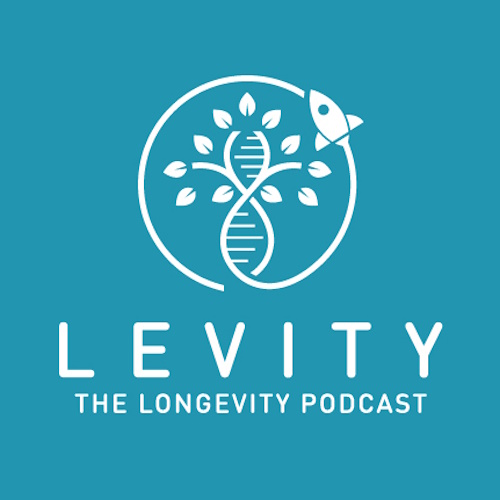Biomarkers of aging: How close are we, really? - A conversation with Sara Hägg
Levity Podcast Episode- Sara Hägg delves into the science of aging biomarkers
In this episode, the Levity hosts speak with Dr. Sara Hägg, a leading researcher at the Karolinska Institute, who heads the Molecular Epidemiology of Aging group. Together, they explore the science and promise of biological age clocks—tools designed to measure how fast we’re aging rather than how long we’ve lived—and discuss whether we’re truly close to measuring or even reversing aging.
Key Points:
Dr. Sara Hägg emphasizes that biological aging clocks are powerful research tools, yet still far from being ready for clinical use. She highlights that truly understanding and slowing the aging process will require vast, diverse datasets and deeper insight into the complex cellular mechanisms that drive aging. Despite remarkable technological and AI-driven advances, Sara reminds us that, for now, lifestyle factors and preventive healthcare remain our most effective strategies for promoting healthy aging.
- What Are Biological Age Clocks?: Biological or epigenetic clocks estimate the functional age of our bodies by analyzing DNA methylation patterns—chemical markers that regulate how genes are expressed and change as we age.
- The Rise of Epigenetic Clocks: The field took off after Steve Horvath’s 2013 study, which showed astonishingly accurate links between DNA methylation and chronological age, sparking an explosion of new “aging clock” research using genetic, proteomic, and metabolic data.
- Beyond DNA- Proteomic and Organ-Specific Clocks: Hägg’s current work explores proteomic clocks, which analyze proteins in the blood to estimate how organs like the liver or kidney age individually—offering more precise and clinically relevant tools.
- Challenges and Limitations: Despite hype around anti-aging breakthroughs, no biomarker is yet validated for clinical use. Current models are noisy, population-based, and not individualized enough for medical application.
- The Role of AI and Big Data: Artificial intelligence is rapidly improving the accuracy of aging clocks and uncovering life-stage shifts in molecular aging patterns. Still, Hägg stresses that biology moves slower than technology—AI can assist but not replace experimentation.
- Human Diversity and Data Gaps: Most aging clocks were developed using European-ancestry data; global and sex-specific data—especially female aging and menopause—remain underexplored and are critical to understanding true biological diversity.
- The Reality of “Solving” Aging: Hägg cautions against sensational claims (like living to 150). She believes current knowledge and interventions—diet, exercise, fasting—can slow but not stop aging, as cellular mechanisms remain poorly understood.
- Public Engagement and the Future of Longevity Research: Awareness driven by popular figures (e.g., Brian Johnson) helps funding and interest, but scientists must balance excitement with realism. Hägg emphasizes the need for collaboration, standardization, and public trust in longevity research.
Visit website: https://www.youtube.com/watch?v=vsNhfGI4jYA
See alsoLEVITY Podcast
Ageing Science and radical life extension podcast with Peter Ottsjö and Ingemar Patrick Linden
Details last updated 30-Oct-2025





